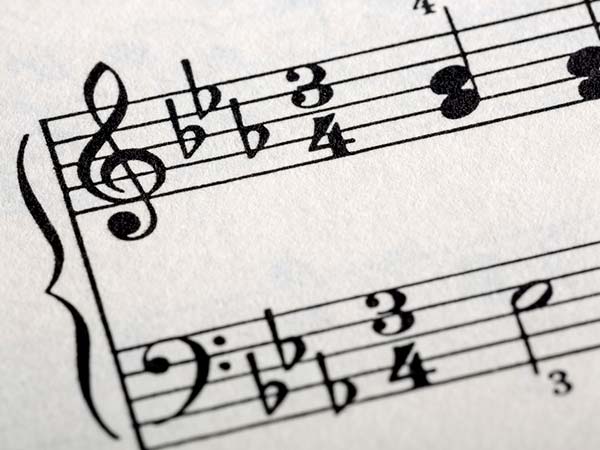Just In
- 2 hrs ago

- 3 hrs ago

- 7 hrs ago

- 8 hrs ago

Don't Miss
- Movies
 Shivangi Joshi New Show: Barsaatein Star Bags Lead Role In BIG Project Opposite Popular YouTuber? DEETS
Shivangi Joshi New Show: Barsaatein Star Bags Lead Role In BIG Project Opposite Popular YouTuber? DEETS - Sports
 On This Day in IPL: CSK Played their First Match at Chepauk, Dhoni scored first 20th Over Six
On This Day in IPL: CSK Played their First Match at Chepauk, Dhoni scored first 20th Over Six - Finance
 Rs 2.20/Share Dividend Declared: 84-Yrs Old Small Cap Tata Co Reports 7.7% Rise In Net
Rs 2.20/Share Dividend Declared: 84-Yrs Old Small Cap Tata Co Reports 7.7% Rise In Net - News
 Goa's Railway Renaissance: BJP's Vision Transforms Connectivity
Goa's Railway Renaissance: BJP's Vision Transforms Connectivity - Education
 Meet Naima Khatoon, First Vice Chancellor of AMU, Know Her Background and Education Qualification
Meet Naima Khatoon, First Vice Chancellor of AMU, Know Her Background and Education Qualification - Technology
 Xiaomi Robot Vacuum Cleaner S10, Handheld Garment Steamer, and Redmi Buds 5A Launched in India
Xiaomi Robot Vacuum Cleaner S10, Handheld Garment Steamer, and Redmi Buds 5A Launched in India - Automobiles
 Nissan Magnite Achieves 1 Lakh Unit Sales Milestone: Consistency Helps
Nissan Magnite Achieves 1 Lakh Unit Sales Milestone: Consistency Helps - Travel
Kurnool's Hidden Gems: A Guide To Exploring India's Lesser-Known Treasures
High BP? Listen To Mozart To Reduce Hypertension: Study Suggests
Listening to the music legand Mozart can not only soothe your mood but also help lower blood pressure as well as stablise the heart rate, a new research has found.
The findings showed that listening to classical music maestros such as Wolfgang Mozart and Johann Strauss the younger for 25 minutes could lower blood lipid concentrations and heart rate.

The study analysed 60 participants who were exposed to 25 minutes of music by Mozart, Strauss or ABBA, which is a Swedish pop group that was formed in Stockholm in 1972.
Another group of 60 participants were allocated to a control group who spent their time in silence.
Mozart lowered the systolic (upper reading) BP, the pressure in blood vessels when the heart beats, by 4.7 mm Hg, Strauss by 3.7 mm Hg, whereas no substantial effect was seen for the songs of ABBA.
Diastolic (lower reading) blood pressure, when the heart rests between beats, also fell by 2.1 mm Hg for Mozart and 2.9 mm Hg for Strauss.
"It has been known for centuries that music has an effect on human beings. In our study, listening to classical music resulted in lowered blood pressure and heart rate. These drops in blood pressure were clearly expressed for the music of Mozart and Strauss," said Hans-Joachim Trappe und Gabriele Volt of the Ruhr University Bochum in Germany. "But Mozart's music had the strongest effect," he added.

Further, resting in a supine position also resulted in blood pressure lowering, but the effect was far less pronounced than for exposure to the music of Mozart or Strauss.
In addition, after exposure to the music of Mozart and Strauss, cortisol levels were found to drop more in men than in women.
Quiet music of a slow tempo, long legato phrases and unchanging dynamics are regarded as beneficial for the cardiocirculatory system, said the paper published in the journal Deutsches Arzteblatt International.
(Inputs from IANS)
-
 wellnessHypertension In India: This State Is On Top; Is It The Food Habits Cause For High BP?
wellnessHypertension In India: This State Is On Top; Is It The Food Habits Cause For High BP? -
 healthBlood Pressure: Is Feeling High Blood Pressure When Lying Down Normal or Risky?
healthBlood Pressure: Is Feeling High Blood Pressure When Lying Down Normal or Risky? -
 wellnessIs High Blood Pressure (Hypertension) Affecting Your Body? 15 Negative Effects Of High BP & Ways To Manage It
wellnessIs High Blood Pressure (Hypertension) Affecting Your Body? 15 Negative Effects Of High BP & Ways To Manage It -
 healthPocket-Friendly Foods To Manage High Blood Pressure
healthPocket-Friendly Foods To Manage High Blood Pressure -
 healthHow To Manage Stress And High Blood Pressure In The First Place
healthHow To Manage Stress And High Blood Pressure In The First Place -
 wellnessWhat Are The Benefits Of Drinking Beetroot And Orange Juice Every Day?
wellnessWhat Are The Benefits Of Drinking Beetroot And Orange Juice Every Day? -
 recipes5-Ingredient Lunch Recipe For People With High Blood Pressure
recipes5-Ingredient Lunch Recipe For People With High Blood Pressure -
 wellnessIs Hypertension Linked To Erectile Dysfunction?
wellnessIs Hypertension Linked To Erectile Dysfunction? -
 wellnessHypertension In India On The Rise: Causes, Symptoms And Ways To Manage The Condition
wellnessHypertension In India On The Rise: Causes, Symptoms And Ways To Manage The Condition -
 wellness13 Ways To Lower High Blood Pressure Naturally
wellness13 Ways To Lower High Blood Pressure Naturally -
 wellnessHypertension Alert! 10 Foods To Avoid With High Blood Pressure
wellnessHypertension Alert! 10 Foods To Avoid With High Blood Pressure -
 wellness10 Foods To Strictly Avoid If You Have High Blood Pressure (Hypertension)
wellness10 Foods To Strictly Avoid If You Have High Blood Pressure (Hypertension)


 Click it and Unblock the Notifications
Click it and Unblock the Notifications



